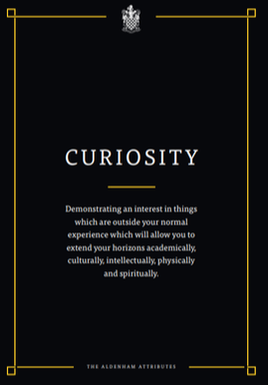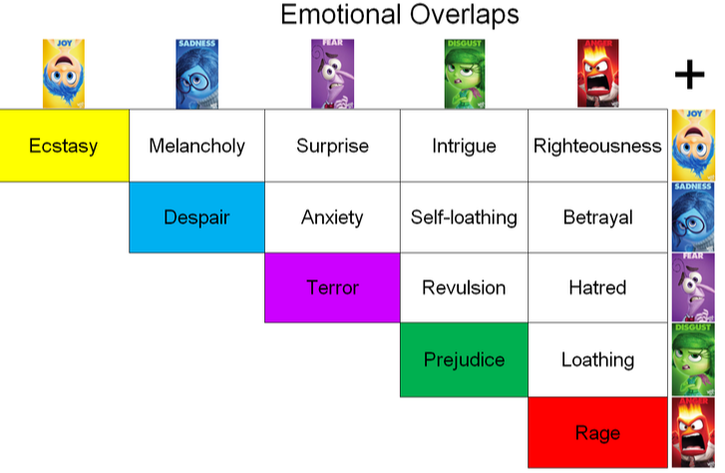
Curiosity
Demonstrating an interest in things which are outside your normal experience which will allow you to extend your horizons academically, culturally, intellectually, physically and spiritually.
Demonstrating an interest in things which are outside your normal experience which will allow you to extend your horizons academically, culturally, intellectually, physically and spiritually.
Further and Wider
|
Wherever possible, opportunities for developing students' interest and curiosity further and wider are taken.
| |||||||
Psychology Film Club

Psychology Film Club is for students in Year 11 – Year 13 as part of the Activities programme.
Roughly each week, we watch a psychological drama or thriller and then discuss the psychological themes, and possible meanings of the film.
The act of movie-watching can improve mood (emotional), serve as a bonding experience with friends (social), engage memory and attention in a healthy workout (cognitive) and serve as a good, clean source of fun (behavioural). Furthermore, both ‘movies as a coping tool’ and ‘movies as a metaphor’ offers psychological exploration.
The Psychology Film Club is open to all students, whether they are studying Psychology or just enjoy film.
Roughly each week, we watch a psychological drama or thriller and then discuss the psychological themes, and possible meanings of the film.
The act of movie-watching can improve mood (emotional), serve as a bonding experience with friends (social), engage memory and attention in a healthy workout (cognitive) and serve as a good, clean source of fun (behavioural). Furthermore, both ‘movies as a coping tool’ and ‘movies as a metaphor’ offers psychological exploration.
The Psychology Film Club is open to all students, whether they are studying Psychology or just enjoy film.
Developing Psychological Literacy
According to McGovern, psychological literacy is being insightful and reflective about one’s own and others’ behaviour and mental processes’ and having the ability to apply ‘psychological principles to personal, social, and organisational issues in work, relationships and the broader community’.
Psychological literacy is developed through the use of self-report measures in class, allowing students to gain insight on their own behaviour and processes. Rather than being responsive to the 'psychological vanity' shown by some students ('Analyse me, Miss'), this allows students to be curious about their own Psychology. Additionally, it does require significant self-management to understand the judgements these self-reports offer.
Some of these self-report measures can be found below.
According to McGovern, psychological literacy is being insightful and reflective about one’s own and others’ behaviour and mental processes’ and having the ability to apply ‘psychological principles to personal, social, and organisational issues in work, relationships and the broader community’.
Psychological literacy is developed through the use of self-report measures in class, allowing students to gain insight on their own behaviour and processes. Rather than being responsive to the 'psychological vanity' shown by some students ('Analyse me, Miss'), this allows students to be curious about their own Psychology. Additionally, it does require significant self-management to understand the judgements these self-reports offer.
Some of these self-report measures can be found below.
A shortened version of the Dark Triad scale can be found here
The triad measures machiavellianism (a manipulative attitude), narcissism (excessive self-love), and psychopathy (lack of empathy). | |||||||




